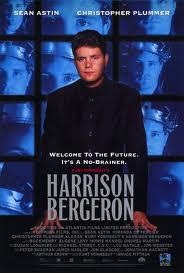 Back when our husbands worked at the same plant, I knew her better. We'd get together occasionally; I thought her to be loud and a bit brassy. She wasn't someone I would really choose to be friends with.
Back when our husbands worked at the same plant, I knew her better. We'd get together occasionally; I thought her to be loud and a bit brassy. She wasn't someone I would really choose to be friends with.God can bring change to people, though. She and her husband met Lord Jesus one day. They joined a faith community and found that God--rather than money--could provide for their every need. And it wasn't always easy. Jack lost a couple of jobs and they weren't able to go through with an adoption for a child they wanted. They moved down South, hit hard times, moved back North. Their daughter had a difficult marriage and divorced. They took on the task of raising grandchildren.
Still, she wasn't someone I would choose to be friends with. Except for both being teachers, we had little in common. She and Jack would still stop by the house occasionally, usually at inopportune moments--like the time the ceiling in the hallway had fallen down!--and we'd go back to our own lives. After Ron had the car accident, Cheryl sent a card and a meal. We visited their church once or twice. But ours was a fragile relationship; we were pleasant to each other, nothing more.
God, however, can use all sorts of people in our lives. We never know where encouragement or inspiration may come from. We never know who is watching us. If we are godly people, we need to remember who it is we represent.
I was on my way through Walmart yesterday, picking up a few items for a family party. I wasn't feeling particularly well. The heat had kicked up my asthma and I'd developed a cough. But we only manage one cook-out a summer, so I was still gathering supplies and determinedly plowing ahead. That's when I saw Cheryl outside the restrooms and while I was tempted to just nod and move on, I stopped. And talked.
It's been a year since I talked to Cheryl for more than a second or two. We quickly filled each other in. She'd lost her job a few months ago and was unemployed, trying to find another job. She'd had an interview at a Christian school, but she said the salary offered was pitiable. She was still looking. I told her I was going to a new school as a Title 1 teacher, not thrilled that it was further away then I'd hoped. I wanted to teach four more years, I said, until I could get full retirement.
She sighed. "God is good. All the time."
I nodded. People were always saying that. After Ron's car accident, I heard it ad nauseum.
"I really mean it" she said. "I wanted to stay three more years and get full retirement. Now I can't find a job and we're probably going to have to move. But I still believe it. God is good. All the time. Even when it seems like He's NOT being good, He is. All the time."
Her words gave me pause. I told her about my eye problems and the likelihood of a cornea transplant. I told her I was worried about driving into the city again. I told her I had left the school placement up to God, and this is what He had given me.
"God is good," she said again. "All the time. If He sent you there, He has a reason. Just trust Him." We exchanged a few more words until her grandchildren and my husband expressed some impatience and we moved on.
But Cheryl's words stayed with me. God is good. All the time. Even when it doesn't seem as if He is good. I wondered if one of the reasons I was having trouble finishing writing my latest novel in progress--Doodle Cat--was because the main character, a woman minister, seemed to be struggling with her own lot in life. God knew that while I tried to handle it all with grace, I often struggled with my load. Why couldn't I, for example, have a husband who was healthy and worked? Why couldn't I have a school 5 minutes away? Why did I have to have a stupid eye disease?
Because God is good. All the time. I may not know why the things in my life have transpired as they have, but I have to believe in the goodness of God. My plans are not His. His are better.
So even as I struggle to reconcile all the pieces of my life and try valiantly to write faith into my woman preacher character, I need to let Cheryl's word echo in my heart.
God is good. All the time. I do not have to understand it. I just have to believe it.









